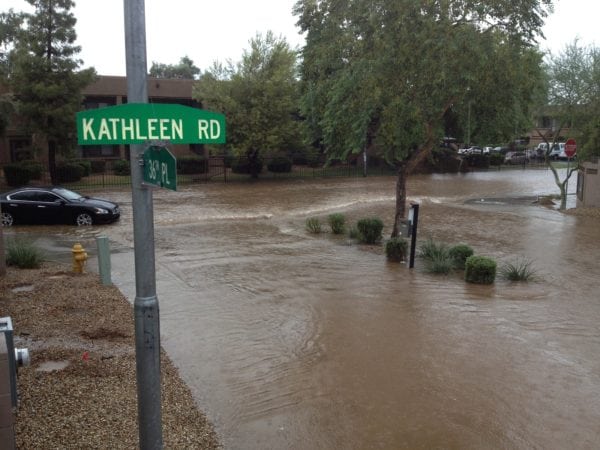In the days following a hurricane, most flood water eventually recedes (or is removed). But before that happens, keep in mind that standing water can pose significant health risks.
“Standing flood water can be a breeding ground for mosquitoes, which carry diseases such as West Nile Virus and encephalitis,” said Jessica Sheehy, infectious diseases physician assistant at Mayo Clinic Health System. “Flood water and standing pools may contain chemicals and sewage, as well.”
Sheehy recommends avoiding standing flood water whenever possible. Follow this advice from Sheehy and the Centers for Disease Control and Prevention:
- If you evacuated, return to your home only after local authorities say it is safe to do so.
- Avoid driving through flooded areas and standing water. As little as six inches of water can cause you to lose control of your vehicle.
- Disinfect items that have touched flood water.
- Wash your hands if you’ve come in contact with flood water or touch objects that have.
- Don’t eat foods that may have come into contact with flood water, even if they are packaged. When in doubt, toss it.
- Do not drink flood water, or use it to wash dishes, brush teeth, or wash/prepare food. Listen to water advisories from local authorities to find out if your water is safe for drinking and bathing. During a water advisory, use only bottled, boiled, or treated water for drinking, cooking, etc.
- Don’t allow children to play in flood waters.
- Never expose an open wound to flood water; use a waterproof bandage at all times.
- Prevent carbon monoxide poisoning. Use generators at least 20 feet from any doors, windows, or vents. If you use a pressure washer, be sure to keep the engine outdoors and 20 feet from windows, doors, or vents.
- Throw out items that cannot be washed and cleaned with a bleach solution (one cup of bleach to five gallons of water): mattresses, pillows, carpeting, carpet padding and stuffed toys. Walls, hard-surfaced floors and many other household surfaces should be cleaned with soap and water and then disinfected with the bleach solution.
- Discard any medications—pills, liquids, drugs for injection, inhalers or skin medications—that have come into contact with flood or contaminated water. The exception to this is drugs that are lifesaving and not easily replaced. In these cases, if the container is contaminated but the contents appear unaffected—for example, the pills are dry—the pills may be used until a replacement can be obtained. However, if a pill is wet or appears discolored from contact with water, consider it contaminated and throw it out. If the power was out for an extended time, and you keep life-sustaining medication, such as insulin, in the refrigerator, keep using the medication until you can get a new supply. But be aware the medication may not be as potent as usual when it reaches room temperature.






